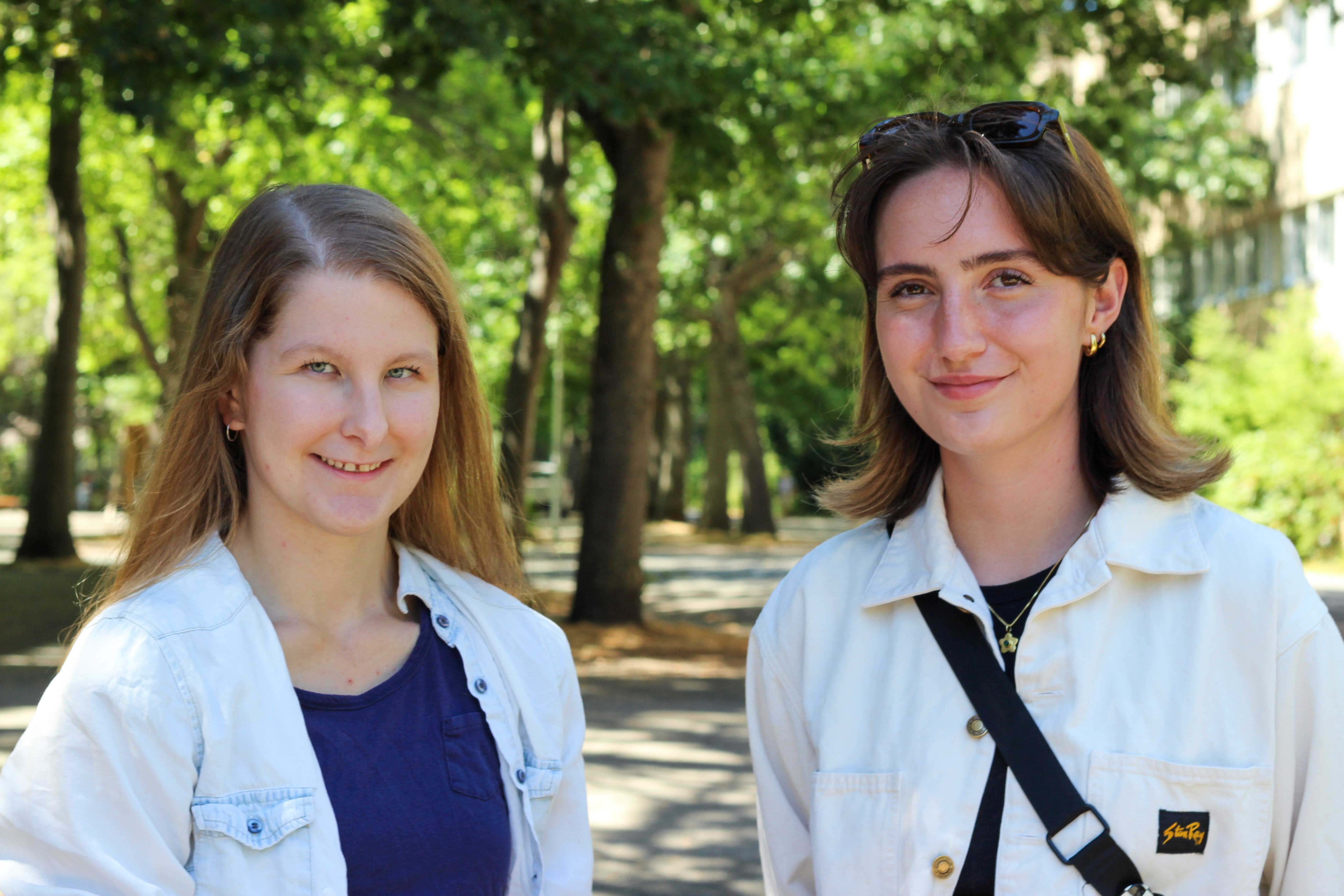Lessons in French and life back on campus

“I didn’t realize how much I missed seeing people and engaging with them until I came back to campus,” says 4th year French major Anabel Sargent.
“And then I thought ‘This is why I love going to university and taking classes.’”
Last month, Sargent returned to campus along with two dozen other undergraduate students for one of two French courses offered throughout July — FRAN 409: Speech Art in French, taught by associate professor Sara Harvey; and FRAN 345: Summer Francophone Institute, taught by professor Catherine Caws.
For both the students and the professors, this was their first time in a classroom on campus since March 2020, when the COVID-19 pandemic necessitated a nation-wide pivot to online learning and instruction.
“I was happy to go back to face-to-face instruction,” says Caws. “The first meeting was quite emotional. Everyone was thrilled to be back.”
Fourth-year Education student Brittany Johnson suggests that the joy of seeing and studying with others in person helped the class to overcome any uncertainties that they may have felt after being away for so long.
“When we all introduced ourselves on the first day, everyone was super keen that this was their first class back. There was obviously a little bit of anxiety related to easing back into the campus life with all the restrictions, but overall people were excited to get back into the classroom and participate,” Johnson states.
Working together
In July, B.C. entered stage 3 of its restart plan, which allowed for indoor gatherings of up to 50 people or 50% of the room’s total capacity. This enabled the University to offer a limited number of in-person classes that adhere to the safety precautions set forth in its own restart plan, which follows the guidance of the BC Restart plan, the provincial Return-to-Campus guidelines and the provincial health officer.
“It is important to take the province’s health measures seriously and collectively address the challenges that are in front of us. The university today is as much a space for sharing and generating knowledge as it is a place for developing the intellectual and critical skills to live in such an uncertain and complex world.”
— Sara Harvey, associate professor of French.
Measures taken by the University to ensure the health and safety of students, faculty and staff include physical distancing requirements, enhanced cleaning and hygiene procedures, and mask recommendations in indoor common areas.
Both students interviewed for this article noted that their instructors were clear about the university’s requirements and considerate of the class’ emotional well-being as well.
“The first thing our professor asked us was about our comfort level with COVID-19 protocols and how we felt about being back in the classroom again, which I thought was really good” says Sargent. “I felt super comfortable. And by hearing how other people felt, I was able to have more empathy for them.”
Johnson adds that the students were also respectful of one another and pro-active about ensuring each other’s unique needs were met.
“When we go outside for group work, everyone makes sure there’s distance between them and that each is comfortable with what the other is doing,” she explains. “Most people will ask things like, ‘are you cool with me removing my mask?’ and then adapt to what the other needs.”
Giving presence
Although the University has offered a limited number of in-person courses and labs throughout the pandemic, some see the courses being taught on campus this summer as a precursor to the return in September, when the majority of courses will be offered in person.
“I’ve really liked being able to sit and talk with my peers again, and to see people that I’ve had classes with in the past four years — even the people that I never got to know before,” Sargent says.
“Now when I go back to campus in September I just want to see everybody in my program and talk to them!”
Author: Philip Cox, Humanities
